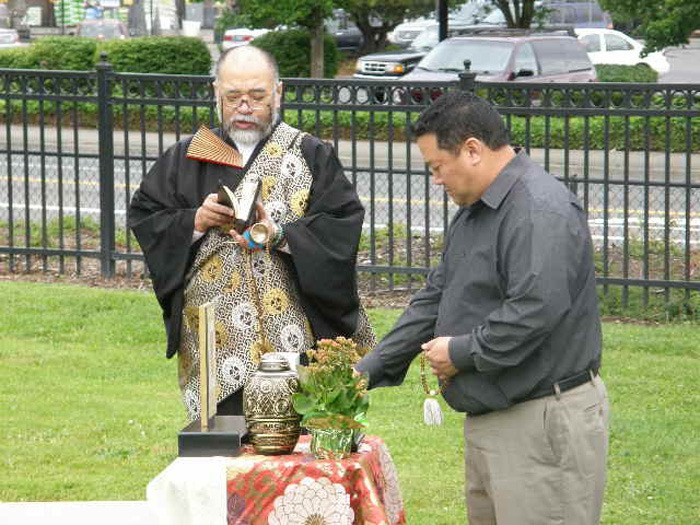Traffic on busy Auburn Way North scattered most of the Reverend Kakei Nakagawa’s words to the whipping winds before they could reach the ears of family and friends at Pioneer Cemetery last Thursday morning.
Just the same, the radiance shone through the outward forms of the simple Buddhist ceremony, held to mark the inurnment of Maki and Mae Yamada, brought together again at the end of things.
Friends and family, each in turn, approached the table where the urns stood, bowed, grabbed a pinch of incense and dropped it into a brazier.
When Mae Iseri Yamada, a member of a pioneering Japanese American family, died on Nov. 17, 2010 at 92, her family asked if the City of Auburn would allow her to rest in the old cemetery, alongside numerous members of the early Japanese-American community.
The family also wanted to bring her husband’s ashes from Evergreen-Washelli Cemetery in Seattle, where they had been since his death in1984.
The most recent burial at the cemetery had been in 1993.
Doug Yamada said that it had been the family’s original hope in 1984 to bring their father’s ashes to the Pioneer Cemetery, but the City did not allow burials there at that time.
Yamada said his mother would have been pleased with the choice.
“Before she got ill, she said this where she wanted to be. Both my parents were born and raised in Auburn, so it made sense to bring dad here,” said Yamada.
Craig Hudson, cemetery director for the City of Auburn, said the family approached him after Mae passed away, and started talking about getting their dad here from Evergreen Washelli, and the arrangement came together in the last few months.
The only stipulation for being buried or inurned there, Hudson said, is that the person must have been a direct descendant of someone who was already in the cemetery.
There’s a cost for the work involved, but the plot itself is free, Hudson said.
“This is where they wanted to be, and where the family wanted them together,” said Hudson.



